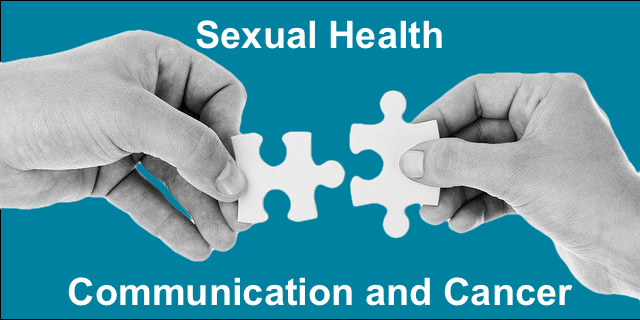“I think sexual health is at the intersection of mind/body & relationship factors. When sexual health is disrupted, it’s really important to figure out all the pieces…often folks only hear bits and pieces like “use lube” or “use it or lose it” & “we need a holistic approach!”[1]
Dr. Sharon L. Bober, founder and director of the Dana Farber Cancer Institute Sexual Health Program, and an Assistant Professor of Psychiatry at the Harvard Medical School, tweeted this message on the #BCSM twitter chat October 26, 2020. Although she was tweeting with people with an interest in breast cancer, the topic is relevant to all adults. Sexual health doesn’t just mean sexual intercourse, Dr. Bober believes. “Sexual health is as much about how we think and feel, our identity, body image as it is about any physical activity.”[1]
Discussing sexual health with your doctor
When people go to their physician, sexual health is not usually the topic of discussion. The physicians that participated in this tweetchat – oncologists, radiologists and surgeons from top medical centers – discussed the challenges. There are guidelines available to physicians to help them talk about sexual health, but, as Dr. Barber noted, “The problem is NOT a lack of guidelines! …it’s a cultural issue. And sexual health is simply never considered as important as other issues.”
To help counter this misbelief, Dr. Kelly Shanahan, (a gynecologist and patient introduced on Medivizor in From Physician to Patient Parts One, On Living with Breast Cancer, and From Patient to Activist) told her colleagues in a tweet,
“Start with ‘these treatments are know[n] to cause sexual side effects like [vaginal dryness, vaginal stenosis with XRT to the pelvis, decreased libido, erectile dysfunction for the men with BC, etc]. Are you experiencing any of these?’ NORMALIZE talking about sex/sexuality!!”[1]
Discussing sexual health with your partner
Of course, conversations between couples experiencing sexual problems can be clumsy as well. “Many couples feel very unsure how to communicate about changes in intimacy/sexuality…unsure what to say, or don’t want to hurt feelings,” Dr. Bober tweeted. “No one has desire when sex hurts and it’s crazy that we don’t give everyone education about vaginal health.”[1]
Another physician turned patient, Dr. Beverly Zavaleta, described her reality about sexual health during her cancer experience,
“These issues get dwarfed by#1 -trying not to die early in the diagnosis #2-cancer fatigue as time goes by, meaning – feeling sick of being sick & wanting to get back to “normal.” It’s exhausting to spend so much time/energy getting better. Worth it! But hard to keep on.” [1]
Dr. Bober provided a resource for physicians – and patients – in dealing with sexual health. For a couple, the knowledge that there are ways to address changes and complications can be liberating. Here are some examples.
Loss of sensation
Nerve damage or lymphedema can reduce sensation. Increasing blood flow to the pelvic area can help. Ways to address it are pelvic floor exercises, vibrators or a vacuum device that have been approved by the FDA. [3]
Dryness
Moisturizing the vaginal area maintains the correct pH. The physicians recommend using an intravaginal moisturizer (like Polycarbophil) and the use of water based lubricants (without fragrance, glycerine, bactericides or spermicides which are irritants).[3]
Pain
Vaginal atrophy is the medical term for a condition involving dryness, reduced blood flow and “vaginal elasticity.” Utilizing both moisturizer and tools to increase blood flow can help, but Dr. Bober also recommends the use of vaginal dilators to stretch the vaginal tissue. Pain can cause an involuntary reaction of the pelvic floor muscles to tighten. This can exacerbate the issue.[3]
Reduced libido
With regard to the problem of libido, Dr. Bober said, “Sexual desire is a biopsychosocial phenomenon with interrelated physical, hormonal, emotional, and relationship factors.” Lack of sexual desire can occur because of medication side effects (some anti-depressants have this same side effect). Changes in hormones as well as lack of sensation, vaginal moisture, or pain, are all physical factors. Anxiety around body image can also impact libido.[3].
During the tweetchat, Dr Zavaleta addressed relationship factors that can affect sexual health, “Another issue is the partner’s adjustments (to the cancer, the changes in the patient, the relationship) Partners also have feelings, bodies, needs. There is a need to start fresh in some cases, reacquaint.” She added, “Processing #grief is a big barrier to cancer healing in many areas, including sexual health. Losing the sex life you had “before cancer” is HUGE.”
Another member of the tweetchat who self-identifies as a metastatic breast cancer patient noted in a tweet that problems with sexual health may be
“…one reason why we see so many broken relationships after diagnosis & treatment. Loss of self, loss of sexual function & health, lack of effective communication, lack of helpful resources, all leading to loss of relationships. So much loss…”
Perhaps, with some attention to this pressing issue, sexual health will become easier to discuss with physicians and loved ones. Effective communication is a first step to addressing this complex knot of challenges.
The breast cancer social media community on Twitter has been holding tweetchats on a weekly basis since July 4, 2011.[2] #BCSM tweetchats occur weekly on Mondays at 9pm ET. Anyone who has an interest in breast cancer can join.
Feature image: Image by PublicDomainPictures from Pixabay
References:
- Symplur Healthcare Hashtag Project, #BCSM Transcript, Healthcare social media transcript of the #BCSM hashtag. –
- Sexual Health after Breast Cancer Treatment https://bcsm.org/sexual-health-after-breast-cancer-treatment/
- Bober, S. L., Reese, J. B., Barbera, L., Bradford, A., Carpenter, K. M., Goldfarb, S., & Carter, J. (2016). How to ask and what to do: a guide for clinical inquiry and intervention regarding female sexual health after cancer. Current opinion in supportive and palliative care, 10(1), 44–54. https://doi.org/10.1097/SPC.0000000000000186






